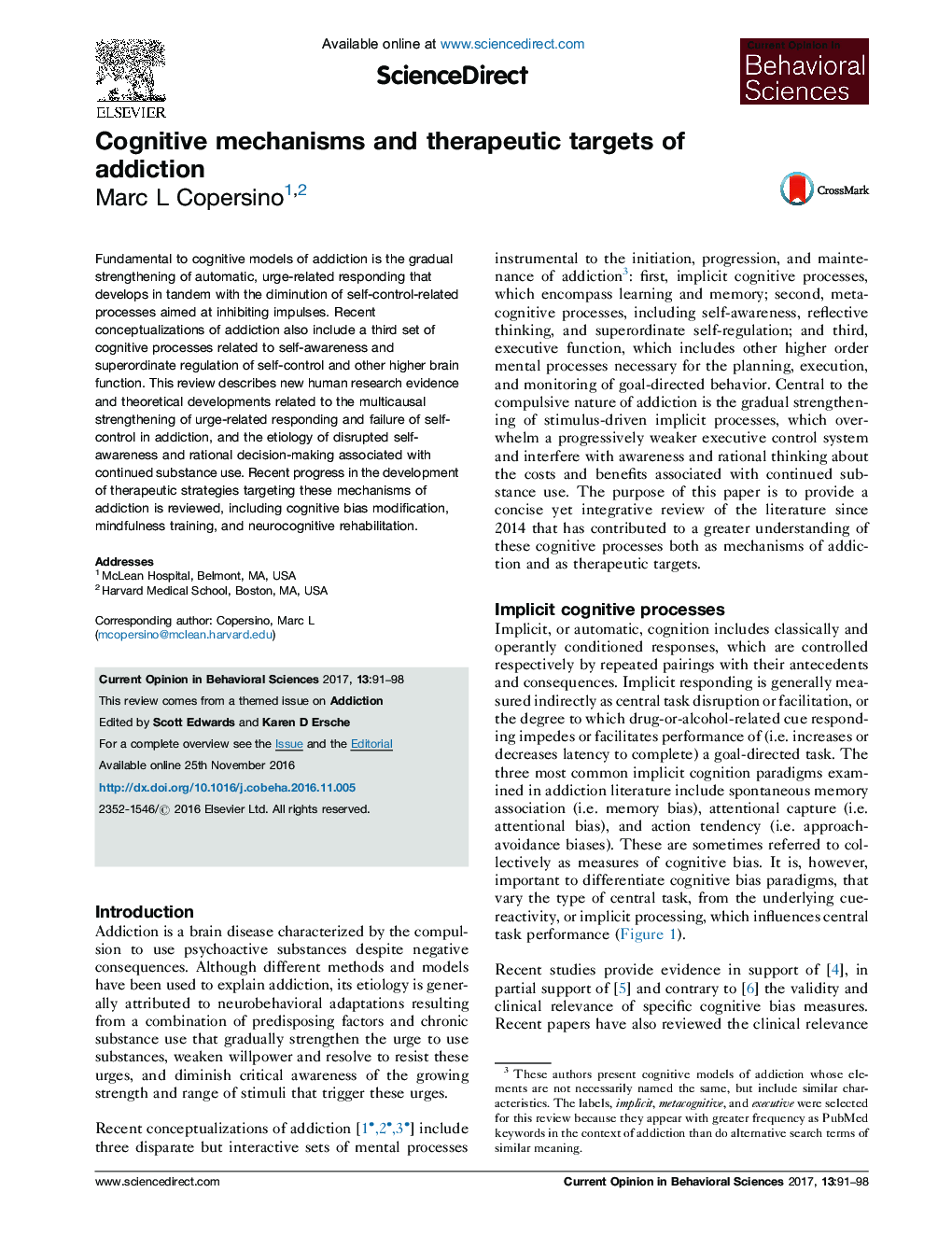| کد مقاله | کد نشریه | سال انتشار | مقاله انگلیسی | نسخه تمام متن |
|---|---|---|---|---|
| 6260316 | 1613077 | 2017 | 8 صفحه PDF | دانلود رایگان |
- Cognitive mechanisms of addiction include automatic and controlled processes.
- Strengthening of automatic and weakening of controlled processes are multicausal.
- Automatic processes can disrupt substance use-related self-awareness.
- Promising new therapeutic strategies target various mechanisms of addiction.
- More research is needed to examine effectiveness of neurocognitive rehabilitation.
Fundamental to cognitive models of addiction is the gradual strengthening of automatic, urge-related responding that develops in tandem with the diminution of self-control-related processes aimed at inhibiting impulses. Recent conceptualizations of addiction also include a third set of cognitive processes related to self-awareness and superordinate regulation of self-control and other higher brain function. This review describes new human research evidence and theoretical developments related to the multicausal strengthening of urge-related responding and failure of self-control in addiction, and the etiology of disrupted self-awareness and rational decision-making associated with continued substance use. Recent progress in the development of therapeutic strategies targeting these mechanisms of addiction is reviewed, including cognitive bias modification, mindfulness training, and neurocognitive rehabilitation.
Journal: Current Opinion in Behavioral Sciences - Volume 13, February 2017, Pages 91-98
